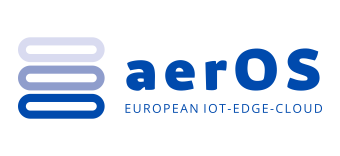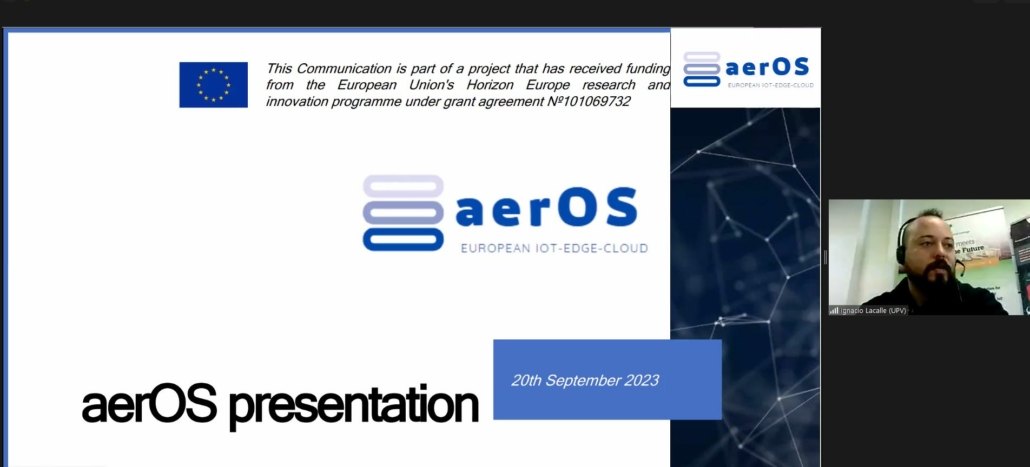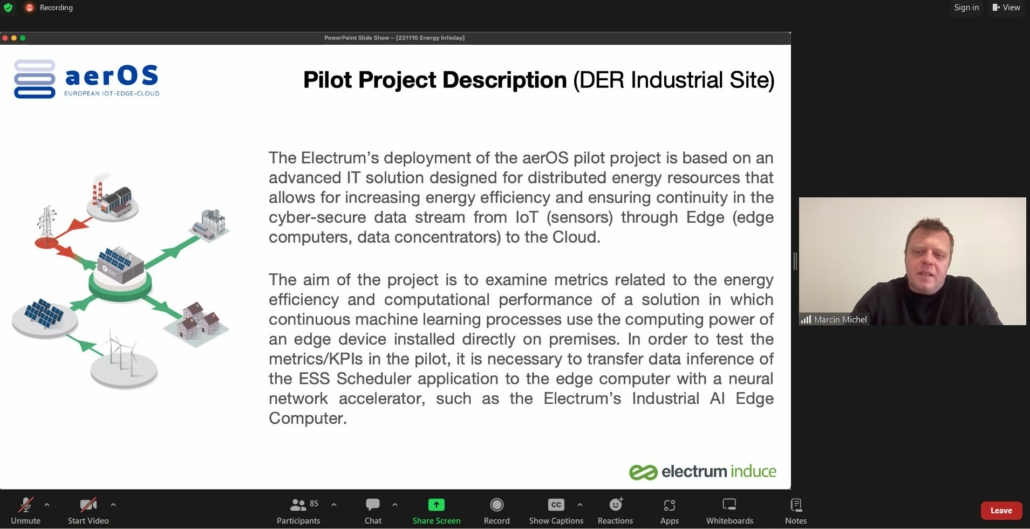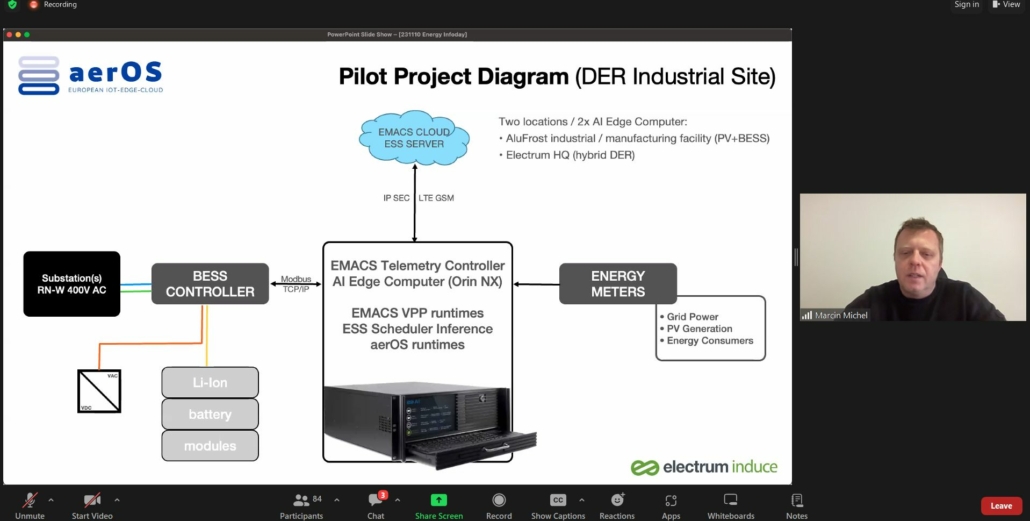Fotini Setaki from Cosmote presented “Energy Efficient, Health Safe & Sustainable Smart Buildings”, during “Giving Energy an Edge: Showcasing the Edge to Cloud Continuum in Energy,” event by EuCLoudEdgeIoT which took place on November 10th.
The Energy Infoday that took place on Friday 10th November, 2023, at 10:00 (CET), brought together over 100 attendees, including industry experts, innovators, researchers, developers, SMEs, start-ups and energy company stakeholders to discuss the latest trends and technologies shaping the future of energy and innovations of the Cloud-Edge-IoT Continuum in Energy sector. We are very thankful for every participant and want to express our special gratitude to all speakers, panellists, open calls and use case representatives for their diverse input as well as adding depth to the conversations that followed.
The Infoday kicked off by exploring the general landscape of SME innovation in the Grid Edge sector, spotlighting the EU CEI MetaOS projects. This broad view was further complimented by a presentation showcasing a panoramic view of various European project clusters working on transforming and digitising the energy sector.
After a first overview of the current state of innovation, those inputs were reflected and augmented by gathering valuable inputs on the current transition challenges on topics such as energy infrastructure, adaptability, and electrification of heat and mobility. During a panel discussion, they were critically analysed from an overarching, institutional and energy distributor perspective, which was shared as well as contrasted by the point of view of energy start-ups.
























